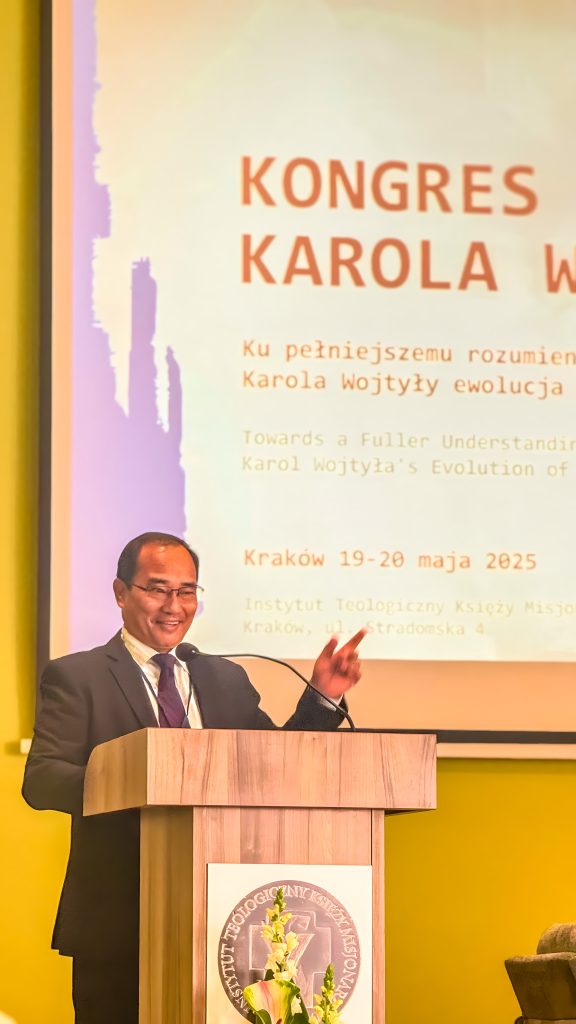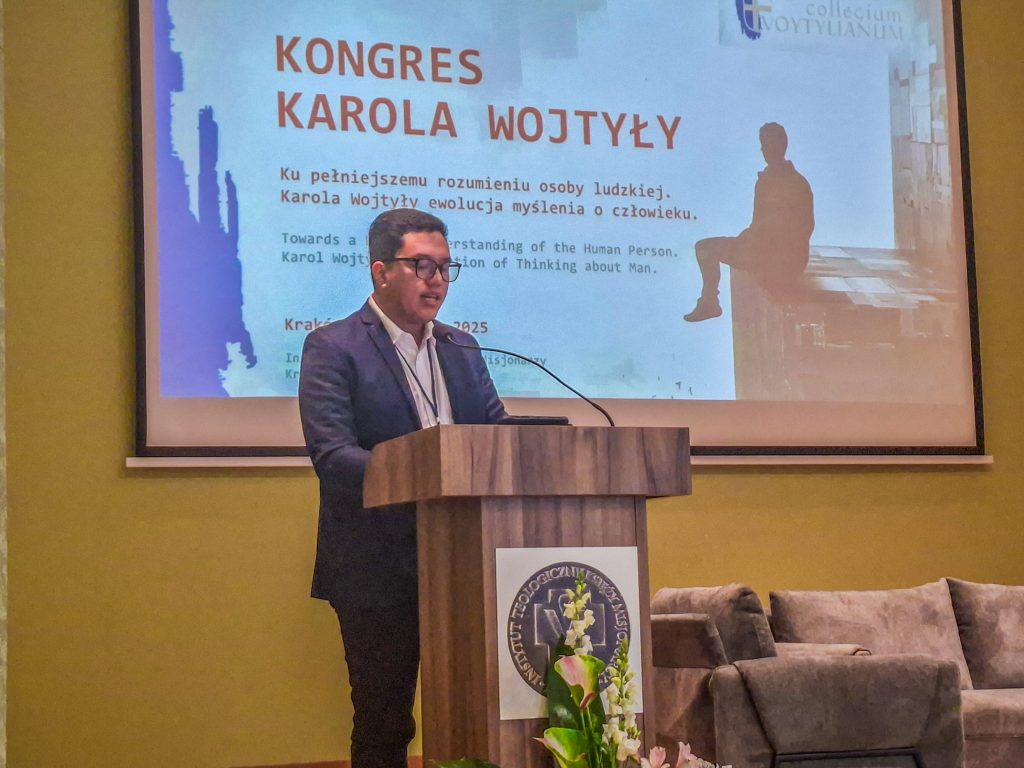In May 2025, Professor Jove Jim S. Aguas, PhD, and Assistant Professor Blaise D. Ringor, PhD, participated in three major academic conferences in Poland and Romania, where they delivered keynote and plenary addresses on themes central to the Church’s intellectual and moral vocation in a fractured world.
The first conference was the Karol Wojtyła Congress held on May 19 at the Pontifical University of John Paul II in Kraków, Poland. Scholars from around the globe convened to examine the philosophical and theological legacy of Pope Saint John Paul II, whose thought remains vital for contemporary personalism and Catholic anthropology. In the said conference, Aguas delivered a keynote address titled The Perfection of Power and Integration of the Person: St. Thomas Aquinas and Karol Wojtyła on Virtue, offering a synthesis of Thomistic metaphysics and Wojtyłan ethics. He argued for a view of virtue rooted not in coercion or convention but in rational and spiritual freedom. Ringor followed with Divinus in Caro: Karol Wojtyła’s Ontological Personalism In-Between Theomorphism and Technomorphism where he critiqued the twin extremes of deifying or dehumanizing the human person and proposed Wojtyła’s incarnational vision as a compelling alternative grounded in freedom, responsibility, and participation in truth.
Afterwards, they attended the 11th Religion, Knowledge, and Society Conference held in “Ovidius” University of Constanța, Romania with the theme Global Tendencies, Local Realities: Redefining Peace in a Multipolar World. In this event brought together international experts to explore new frameworks for understanding peace amid global unrest, Aguas presented his plenary lecture titled Global Solidarity: A Key Component in Attaining World Peace, proposing solidarity as both a spiritual calling and ethical imperative. He emphasized that authentic peace requires shared responsibility for upholding human dignity. In another plenary lecture, Whose God is in the City? Political Ontology, Religious Plurality, and the Indispensable Desire for Peace, Ringor explored the metaphysical and theological underpinnings of urban life. Drawing from classical and Christian political thought, he argued that peace depends on restoring a transcendent orientation within civic life.


The final leg of their academic sojourn brought Aguas and Ringor to Suceava, Romania, for the 11th Religion, Knowledge, and Society Seminar, Vatra Dornei from May 25 to 28. Centered on Pathways Towards Reconciliation: Philosophical and Theological Approaches, the seminar explored healing from historical and contemporary wounds. In this seminar, Aguas tackled the topic Reconciliation Through Dialogue: The Philippine Experience, drawing on interreligious dialogue efforts in the Philippines to demonstrate how openness and shared moral foundations foster peace while Ringor discussed the Thomistic-Augustinian account of reconciliation through divine mercy in his talk titled“Remember Me When You Come Into Your Kingdom”: Suffering, Repentance, and Mercy.
Aguas is a Full Professor of the Department of Philosophy and teaches at the Graduate School and the Faculty of Philosophy, while Ringor is the Academic Collaborations Officer of the Ecclesiastical Faculties of Theology, Philosophy, and Canon Law.


